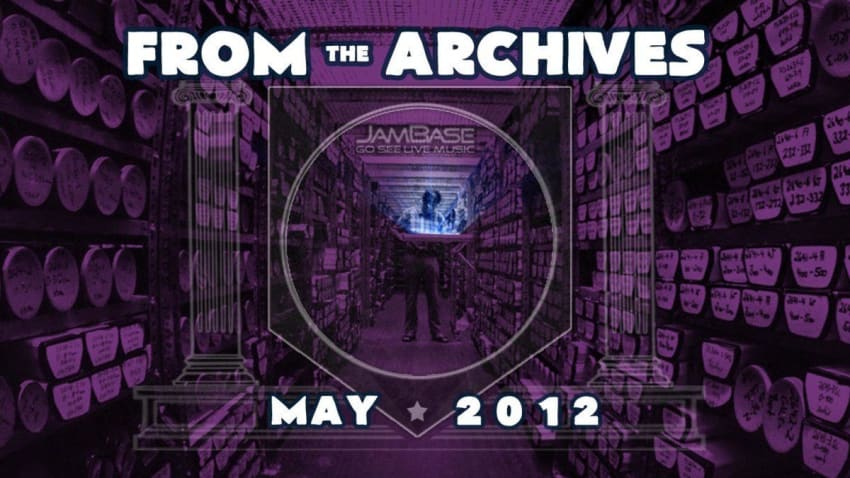Bill Frisell | San Francisco | Review
By Team JamBase May 1, 2012 • 2:21 pm PDT

Bill Frisell :: 04.21.12 :: Herbst Theatre :: San Francisco, CA
 |
From the start of the film, it was clear that there couldn’t have been a more perfect accompaniment to such imagery than Frisell’s delicate musical stylings. Frisell’s shimmering guitar playing evokes water flowing on its own, but when paired with Morrison’s incredible footage of a flooded Mississippi it took on a deeply profound air. Together with Ron Miles on trumpet, Tony Scherr on bass and Kenny Wollesen on drums, Frisell sculpted a half-composed, half-improvised journey back in time to a shadowy, half-forgotten place. The band’s playing ebbed and flowed with the river onscreen, crafting a dreamy remembrance of an America that is long gone – the grainy, partially deteriorated footage of stranded Southerners floating by on bits of debris was accentuated by the band’s sparse, melancholy phrasing, and took on a haunting, faded quality.
 |
The film was separated into vignettes which each focused on a different aspect of the flood. After the initial melancholy-tinged footage of the river rising and flooding, there was a short interlude featuring pages from the 1927 Sears Roebuck catalog moving rapidly across the screen. The band gave this light-hearted display of commercial illustration some playful be-bop solos, and we were given a look at commercial landscape of the time before plunging back into the destruction of the flood. The next section featured a bluesy look at the massive population of displaced Southerners, mostly poor blacks going about the business of cleaning up with hardened resolve. Though the destruction of the rolling brown Mississippi onscreen contradicted the soothing, serene feeling which Frisell’s music imbued into it, it still felt like the perfect accompaniment. Miles’ trumpet often teased hints of folk melodies that rose out of the musical ether – an amazing shot of cattle being herded in water up to their necks was punctuated by the muted notes of “Old Man River” to a powerful effect.
 |
The film ended with segments that showed how the Great Flood kick-started the Great Migration of blacks north to Chicago and other urban areas. Over footage from the 40s of urban slums and black musicians letting loose, the band launched into a rousing yet mournful full-on version of “Old Man River,” almost dirge-like in tempo but uplifting in feel. This finale managed to encapsulate the entire African-American experience – tragic yet full of resolve and eternal hope. The most striking aspect of this performance was the sheer amount of thoughts and feelings and that were evoked in its audience solely through imagery and music – it was certainly the most a concert had made me feel in as long as I can remember. We walked out of the theatre somewhat drained by the experience, trying to make sense of the welling of emotion the show had inspired in us, in awe of Frisell’s masterful treatment of the material. The man truly has some kind of spiritual connection to the rural South, and is able to touch the faded heart of its past with his guitar in a way that few can.
Bill Frisell Tour Dates :: Bill Frisell News
JamBase | High Ground
Go See Live Music!
